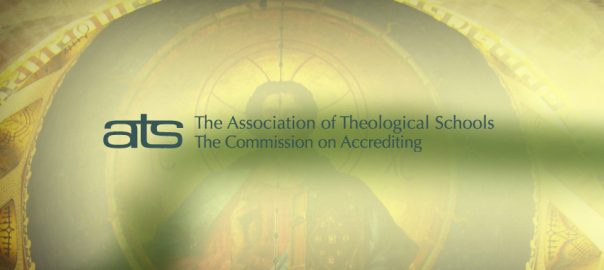This is the second installment of an interview series between ABHE president Ralph Enlow and Northwest Baptist Seminaries’ Kent Anderson and Ruth McGillivray (view Part I here). This interview was originally posted on Dr. Enlow’s blog.
Ralph: I’m curious – how did Northwest get started in CBTE, and why?
Kent Anderson & Ruth McGillvray: They say the first step in change management is realizing you’re on a burning bridge. Honestly, around 2009 we knew our bridge was on fire. The denomination we serve, Fellowship Pacific, was not sending us new students, and its churches weren’t hiring our graduates. This led to some hard, truth-speaking conversations and an acceptance that the traditional higher education model we’d been using to train pastors was no longer working for us. Our graduates didn’t have the skills and competencies our churches needed, and the denomination was looking elsewhere to find pastors.
In response, we undertook a project with the denomination in 2010 to reverse-engineer our MDiv program, by starting with the end in mind. We worked together to identify the competencies we believe pastors need to meet current church needs and re-evaluated the school’s educational approach. In 2012, we launched Immerse, a competency-based, direct assessment, in-context delivery MDiv program run jointly by Northwest and Fellowship Pacific.
The Immerse model was based on core principles of an occupational training model called competency-based education, but adapted significantly for the ministry setting, where character traits, qualities, and dispositions of the heart are as crucial to success as knowledge, skills, and abilities. We called the model Competency-Based Theological Education, or CBTE.
Ralph: Have you had any graduates yet from your CBTE MDiv?
Kent Anderson & Ruth McGillvray: Yes! As of September 2018, we will have 22 graduates from Canada, the United States, and South America.
Ralph: What differences do notice between your CBTE MDiv graduates versus previous graduates from traditional programs?
Kent Anderson & Ruth McGillvray: Our CBTE MDiv graduates are job-ready at graduation. They aren’t trained in classrooms, but rather in full-time ministry under the guidance of a three-person mentor team that includes a Northwest faculty member, network or church leader, and current practitioner. They do traditional assignments like readings, seminars, papers, and projects, but evaluation is focused on application in-context, and timing is determined by the needs of their ministry setting. They learn in real time, on-the-job, and by the time they graduate, they’ve already proven they can be successful in the ministry for which they’ve trained. Our placement rate is 95%.
Also, our graduates are all high performers, since CBTE programs award credit for mastery, not completion. This takes more time for some than others, but that’s the basic premise of CBTE—that learning is constant and time is variable. If a student is not yet meeting the performance standards for a competency—as defined by program rubrics—the mentor team will have them re-do assignments or assign new ones, working with them till mastery standards are met. In conventional terms, it’s like saying a student must achieve minimum 80-85% in every course to graduate, but they have as much time as needed to get there.
The other big differentiator is that Immerse students must demonstrate mastery of affective domain competencies like community, humility, hope, prayer and love in order to graduate, not just knowledge and skill-based competencies like biblical languages, hermeneutics, and exegesis. This is hard to do with rigor or authenticity in a traditional program but works for Immerse because of the way the program is designed, and the fact that mentor teams work with the same student over a period of years, guiding, observing, and assessing all aspects of their development, not just academics.
Read the rest of the interview here.

